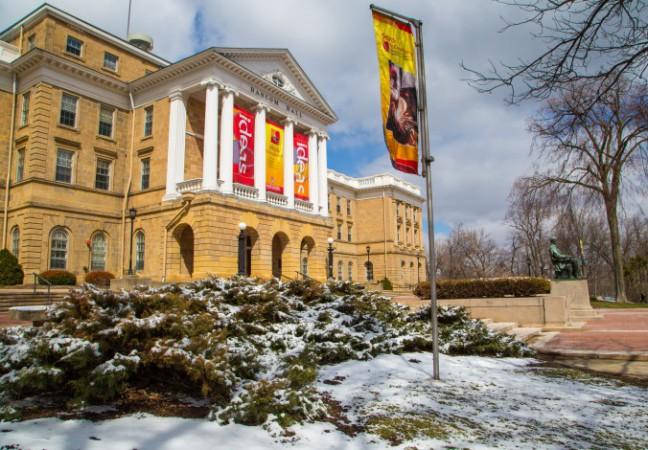After Gov. Scott Walker said Thursday he would be open to extending his proposed tuition freeze —currently set to end in 2017 — for the University of Wisconsin System, concerns have been raised as to how the system will balance the budget cuts.
Walker said during a conference call Thursday he was open to setting a permanent tuition freeze but had no specific recommendations at that time. The proposition comes weeks after his proposal to cut $300 million from the UW System budget with a provision of more autonomy for system authorities.
What Walker’s UW budget cuts and increased autonomy means for students and faculty
“I don’t have a specific proposal,” Walker said. “I’m willing to work with lawmakers on it.”
Associated Students of Madison Vice Chair Derek Field said while the organization’s first and foremost concern is with the magnitude of the cuts, they are also closely watching the issue of tuition.
He said ASM is afraid that after the cuts, tuition would spike as the system attempts to make up for lost revenue. This happened after the one-year freeze ended in the early 2000s and tuition raised 18 percent, he said.
“That would be tragic if that were to happen now, because an 18 percent increase in tuition is about $2000,” Field said.
Field said ASM is conscious of the fact that the university would only raise tuition to that extent if they needed to, and being unable to do so could leave the system scrambling for revenue.
The legislators and general public are tired of seeing and hearing how expensive college has gotten and how student loan debt is going up every year, Noel Radomski, director of the Wisconsin Center for the Advancement of Postsecondary Education, said.
“In the general public, there is anger about rising tuition, and I think that is why politicians play this up,” Radomski said. “A tuition freeze is an attractive thing to say.”
Rep. Dave Murphy, R-Greenville, said his main concern with Walker’s newest tuition proposal is what measures Walker plans to use to cap tuition. There are a different number of models suggesting how such a cap should be implemented, Murphy said.
Murphy said the cap could be linked to the Consumer Price Index, but the details were still unclear. Potentially, tuition could be capped at the consumer index price or at an amount above that level, Murphy said.
Murphy said he has been meeting with regents to craft a formal opinion and proposal regarding the system changes. He said he is waiting for an analysis from the UW detailing how the cuts would affect each campus’ reserve funds.
“Campuses need reserves,” Murphy said. “They need to have money available to have cash flow, similar to a business cash flow. They need to be able to count on certain amounts of cash, and at different times. That’s something that needs to be analyzed — are we cutting reserves to the point where cash flow will not be sufficient?”
Murphy said he sees the UW System as an asset to the state, not something that should be jeopardized. He said this vision of UW is essential as lawmakers move forward.
“I see a version of the university in the future that is lean and strong and competitive, but we have to get there,” Murphy said. “The next two years is going to be key.”
Sarah Zimmermann contributed to reporting on this story.













